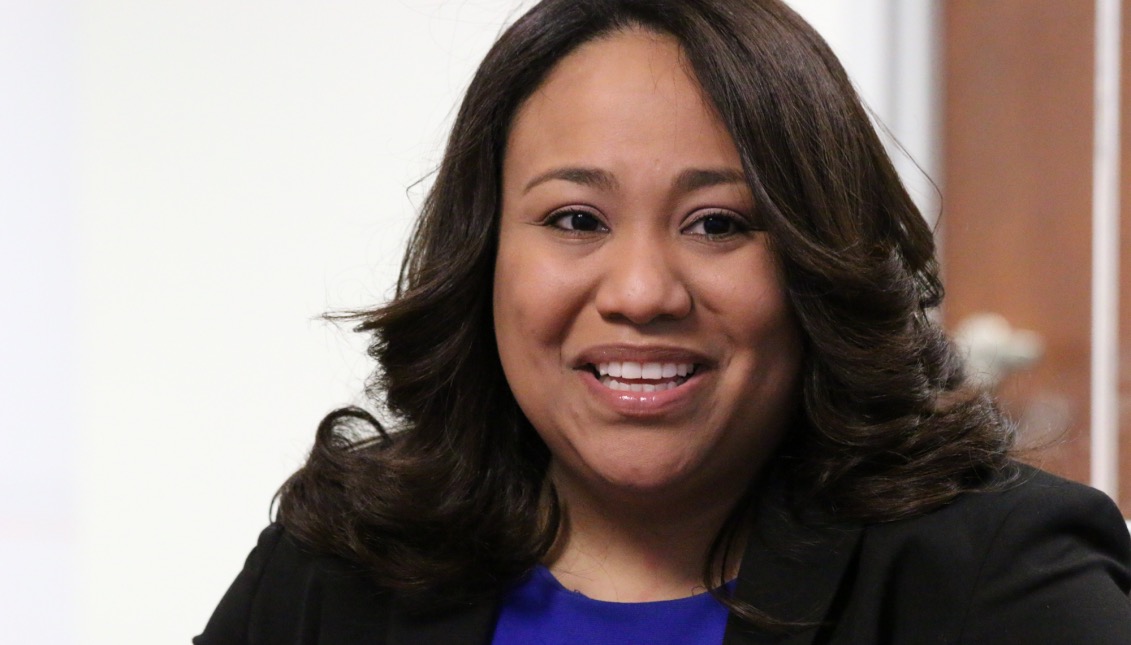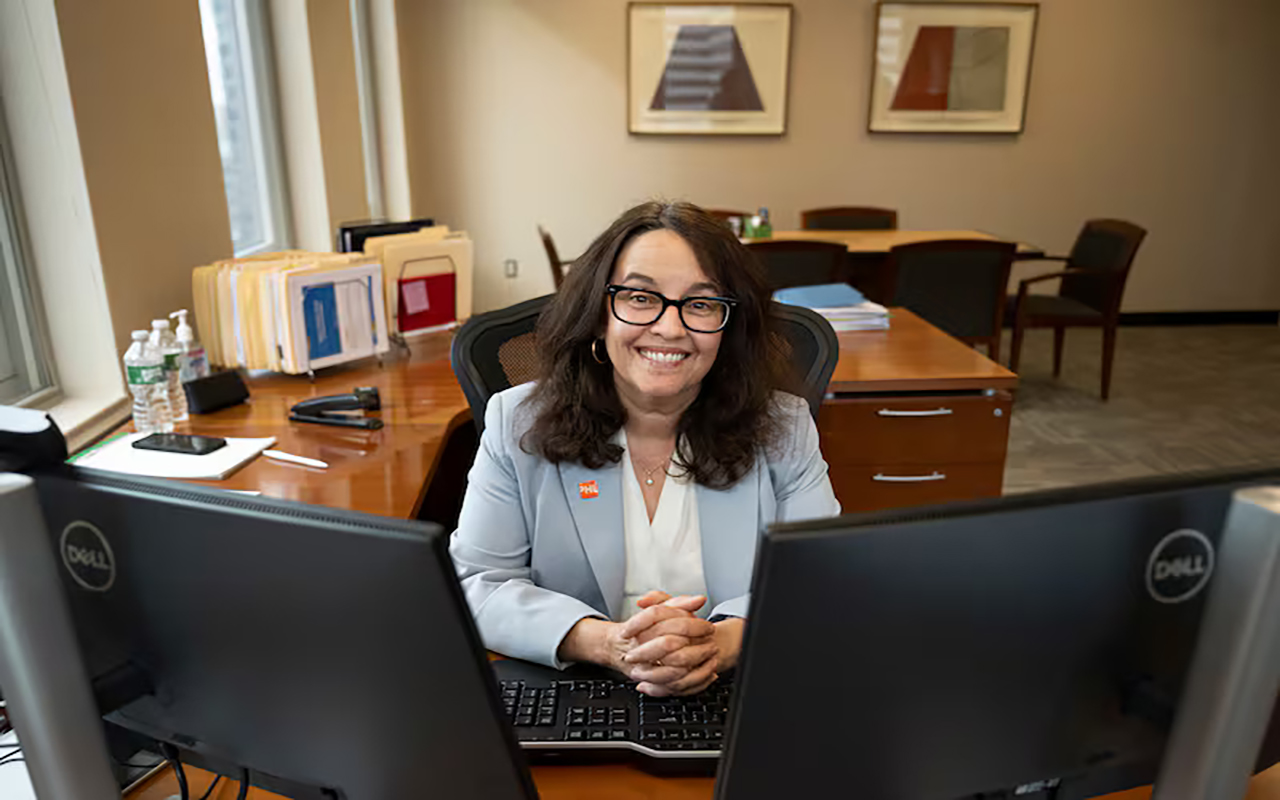
For Mia Roberts Perez, being judge should not be a retirement job
The 33 year old has served as public defender, trial attorney, adjunct professor at Temple School of Law, and even opened and successfully run her own law firm…
Mia Roberts Perez may only be 33 years old but has been practicing law for almost nine years. In this time not only has she served as a public defender, trial attorney and adjunct professor at Temple School of Law, but she has even opened and successfully run her own law firm, Perez Law LLC, which specializes in criminal defense and family law. Now she is looking to bring her energy to the Court of Common Pleas of Philadelphia, where there are currently only two Latina judges and one Afro-Latino judge out of about 100.
Roberts Perez sat down in the AL DÍA News roundtable and talked about why being a judge should not be a retirement job, why those sitting in the bench should reflect the people in Philadelphia, and why voters should care about who gets elected.
Roberts Perez also had a word for mayoral candidate Nelson Diaz.
Here’s what she had to say.
About running for judge at age 33:
Being judge should not be a retirement job. It should not be a job where you are taking a half day. It should not a job where cases are continued for years on end. It should be a job where you have someone who wants to work, and you have someone who’s also reflective of our community here in Philadelphia, which we don’t always have. Being a judge should be about continuing education, and not just saying I made it and I’m sitting up here and that’s it. You need to be ready and be willing to continue to grow.
About having a judicial election system in Pennsylvania:
There are pluses and minuses to having a judicial election. Some of the minuses are obvious, you have judges who are supposed to be neutral… Unfortunately, having to navigate the political system also involves money, and it’s one of the things you are going to hear over and over again from older judges, and it’s what limits people who are in my age bracket from running.
About her campaign:
We are using social media to our benefit. We are reaching out to the unions, which as our society changes and gets younger, unions themselves are getting younger. We are also about grassroots and we are doing many events in the University of Pennsylvania and Temple University to reach millennials, a voter block that has a lot of power and one that is different from old Philadelphia politics. We have a voice and in a lot of the areas where unions and political operatives, young urban professionals have moved in.
About the impact of judges in people’s lives:
Judges more so than the mayor or city council, deal with people’s lives every single day. We can take your freedom away, we can take your right to vote, we can take your children, we can take your property… and that’s why we need to empower our people to understand that chances are you are going to see my face, if I am lucky enough to be elected, or another candidate’s face, before you ever get to sit down with the mayor of the city. We need to sign people up to vote, we need to get them to the polls, and we have to get them to understand the importance and the power of their vote.
About the lack of Latino representation in courts:
We are working with a group that for a long time has been disenfranchised and not just when it comes to judicial elections but overall. We have entire floors of our criminal justice center that are dedicated to the east division of Philly, which is primarily Latino. Why do we currently only have judge (Angeles) Roca in family court and Judge (Teresa) Sarmina in the civil division? We don't have any other Latino judges in the common pleas court. That’s why we have to get the voters to understand.
About the importance of diversity in the bench:
When we look at the law as a judge, our job is to follow the law, which means several components have to come into play. As a member of the judiciary, I’m supposed to work with impartiality, however, impartiality and lack of education are two different things. I can be impartial to the parties that are involved but if someone is coming to me with a specific set of circumstances I need to have the education, or the background, to understand those circumstances. When it comes to family law and criminal law in particular, familiar backgrounds come into play. If we don’t understood the cultural aspect, we are working without understanding.
About mayoral candidate Nelson Diaz endowing a chair at the Temple Law School:
Nelson Diaz has been in the forefront of law for Latinos. He started the Latino student organization at Temple and frankly it dissipated for a long time. I’d love to say things are different, and I’d love to say Latinos have a strong presence in law school but we still don’t. Finances are a huge part of that not to mention the lack of mentors. Nelson Diaz endowing the chair is reflective on what he’s brought to other Latinos, and that’s the essence in some way of the chair. The chair is there to signify a change.
About her plans for the future and her career:
There is beauty in the law, it’s not stagnant. I wish I had a boring day sometimes but every case involves individuals and is unique to that person or to the parties involved. The law is constantly changing, everyday there is a new decision coming out, everyday there are judges who are interpreting laws a certain way that will affect my job. I haven't become bored with being lawyer yet, and I don't see getting bored being a judge.










LEAVE A COMMENT: